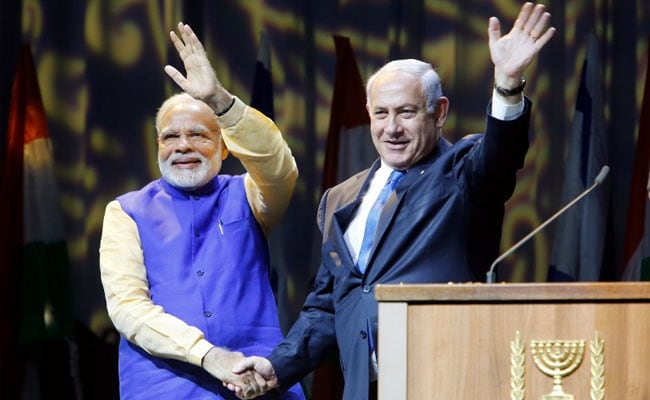- Palestine's ambassador Abdullah Abu Shawesh asked India to lead efforts ending Gaza's humanitarian crisis
- He urged India to use its ties with Israel to press for accountability and aid Gaza's reconstruction
- He indicated there is no other nation more capable than India to lead Gaza's reconstruction
Palestine's Ambassador to India Abdullah Abu Shawesh appealed to New Delhi on Thursday to take a leading role in ending the humanitarian catastrophe in Gaza and in shaping any post-war future, saying India's political weight and ties with Israel uniquely position it to help "put an end to the Palestinian suffering."
In an extended interview to NDTV, Abu Shawesh repeatedly framed India as a natural "champion of the [Global] South" and asked pointedly: "If it is not you, then who? If it is not India, then who?"
He urged New Delhi to use its relationship with Israel constructively - including, he said, to press for accountability - and to be a major partner in any reconstruction plan for Gaza.
The ambassador gave a harrowing, first-hand account of Gaza's humanitarian collapse, saying vast numbers of civilians have borne the brunt of the war.
"The 67,000 Palestinians who were killed... are utterly, purely civilians, not belonging to Hamas," he said, arguing that the lists of victims and published photographs show those killed were not combatants.

He described widespread malnutrition and medical collapse.
"We are talking about 500 children who still now lost their lives because of malnutrition and lack of food... Many of the surgeries went without anesthesia. For children, they amputated their legs and arms without anesthesia," Shawesh said.
Abu Shawesh told NDTV the violence in Gaza fits the definition of genocide, saying international bodies and experts have described it in those terms, and called for global pressure to end the campaign.
"This is not our work - this is the United Nations' [work]... even Israeli watch groups declared that it's genocide," he said.
On the central objection frequently raised by critics - that dismantling Hamas is necessary to prevent future attacks like the October 7 assault that killed over 1,200 people in Israel - the ambassador challenged received narratives.
"If you call Hamas terrorists, I have no problem with that for the sake of argument," he said. "But what are you going to call the Israeli occupation? If the occupation itself is... the very clear cut indication or meaning of terror, what is the meaning of the terror?"
He reiterated the Palestinian Authority's official line that there is "no room" for militias or parallel armed actors in a future Palestinian state and argued that Hamas's origins and growth were shaped by broader regional policies.
Abu Shawesh blamed Israeli policies for strengthening Hamas at various points, a claim he said is part of the historical record.

Turning to India specifically, the ambassador recalled the long historical ties between the two movements - invoking Mahatma Gandhi's opposition to Partition - and said India's recognition of Palestine in 1988 and the country's recent votes in international fora demonstrate continued support.
He described warm popular support across Indian political parties and regions, from Kerala to New Delhi, and said he had been engaging with multiple political leaders and civil society groups.
On terrorism affecting India, Abu Shawesh said the Palestinian leadership has condemned attacks on Indian soil and that President Mahmoud Abbas sent a letter of solidarity after the Pahalgam terror attack by Pakistani terror groups in Jammu and Kashmir.
"Our position was clear... we condemn," he said.
While the ambassador's broad appeal to New Delhi is political, it also contains a practical plea: to leverage India's diplomatic influence and development capacity to alleviate Gaza's immediate humanitarian crisis and to help shape a longer-term, two-state future that, in his words, "guarantees legitimate security for us" and prevents the re-emergence of militias.
As India continues to balance deepening ties with Israel and long-standing support for Palestine, Abu Shawesh's intervention underscores how both New Delhi's moral standing and geopolitical clout are now being courted as part of efforts to end one of the world's most acute humanitarian crises.
Track Latest News Live on NDTV.com and get news updates from India and around the world

